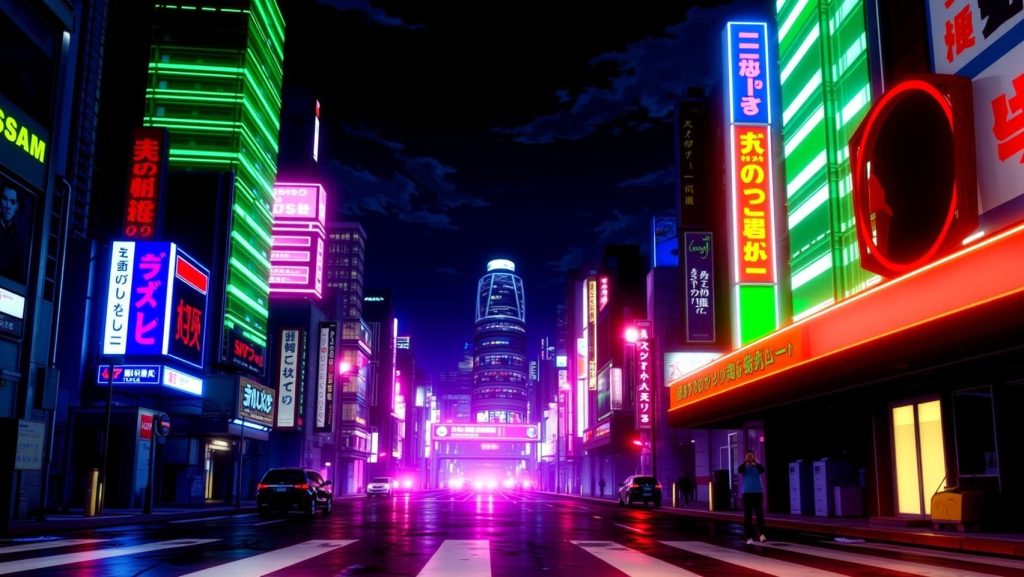Neon Genesis Evangelion: A Detailed Plot Summary and Analysis
Story
“Neon Genesis Evangelion” is a mecha anime that delves into complex psychological and philosophical themes. Set in a post-apocalyptic world, fifteen years after a global cataclysm called the Second Impact, the story follows the trials and tribulations of Shinji Ikari, a 14-year-old boy who is summoned to the futuristic city of Tokyo-3 by his estranged father, Gendo. There, Shinji is reluctantly recruited by his father to pilot the Evangelion Unit-01, a giant bio-machine, to defend humanity from mysterious beings known as Angels.
The narrative unfolds as Shinji, along with fellow pilots Rei Ayanami and Asuka Langley Soryu, battles the Angels. Each Angel manifests in unique forms and presents different tactical challenges, forcing the pilots to push their physical and mental limits. The battles are not just physical; they are also metaphors for the pilots’ internal struggles, anxieties, and their relationships with each other. The pilots are all grappling with deep emotional issues and insecurities, shaped by their complex relationships with their guardians and their own self-doubt.
As the series progresses, the focus shifts from battling the Angels to exploring the secrets of the organization NERV, which controls the Evangelions, and the enigmatic nature of the Second Impact. The story reveals that NERV, under the command of Gendo Ikari, is pursuing a secret agenda tied to the Human Instrumentality Project, a plan to evolve humanity through merging all human souls into a single consciousness. The motivations behind the project, the true nature of the Angels, and the implications for humanity are gradually revealed, raising questions about free will, identity, and the meaning of existence.
Key events include the first encounters with the Angels, the development of the pilots’ relationships, and the gradual unveiling of the Instrumentality Project. Critical plot points involve the psychological breakdowns of the pilots, particularly Shinji, and the devastating consequences of the actions of Gendo and SEELE, the shadowy organization pulling the strings behind NERV.
The ending is notoriously complex and open to interpretation, with the final episodes focusing almost entirely on the internal struggles of the characters. The original series concludes with a sense of existential uncertainty, which was further explored in the subsequent film, “The End of Evangelion,” providing a more decisive, albeit still unsettling, resolution to the story.
Main Characters:
- Shinji Ikari: The protagonist, a withdrawn and emotionally vulnerable teenager struggling to find his place in the world.
- Rei Ayanami: A mysterious and stoic pilot, whose origins and purpose are shrouded in secrecy.
- Asuka Langley Soryu: A proud and competitive pilot, harboring deep-seated insecurities.
- Gendo Ikari: Shinji’s cold and distant father, the commander of NERV.
- Misato Katsuragi: The pilots’ guardian and a NERV officer, acting as a surrogate parent.
- Ritsuko Akagi: A brilliant scientist at NERV, central to the technical operations of the Evangelions.
Key Themes:
The anime explores a wide range of themes, including:
- Psychological Trauma: The series examines the impact of trauma on the human psyche.
- Identity and Self-Discovery: The pilots grapple with understanding themselves and their place in the world.
- Human Connection: The importance and challenges of interpersonal relationships.
- Existentialism: Questioning the meaning of life, free will, and the human condition.
- Religious and Philosophical Symbolism: The use of religious and philosophical concepts to explore deeper meanings.
Analysis:
“Neon Genesis Evangelion” is celebrated for its groundbreaking storytelling and its exploration of complex psychological themes. The anime uses mecha action as a vehicle to explore the inner lives of its characters, offering a profound and often disturbing portrayal of human experience. The series’ influence can be seen in many subsequent anime and other media, solidifying its status as a seminal work of the genre. The focus on character development and introspective storytelling, along with the visually striking mecha designs, contributes to its lasting popularity and critical acclaim. The narrative structure, use of symbolism, and refusal to provide easy answers require significant viewer engagement, making it a truly unique and thought-provoking experience. The ending is often debated and reinterpreted, which reflects the complexity of the themes and the depth of the show itself. This anime, though centered around giant robots, goes far beyond the conventional boundaries of the mecha genre, resulting in a narrative that is both personal and universal, drawing viewers into its intricate world.

